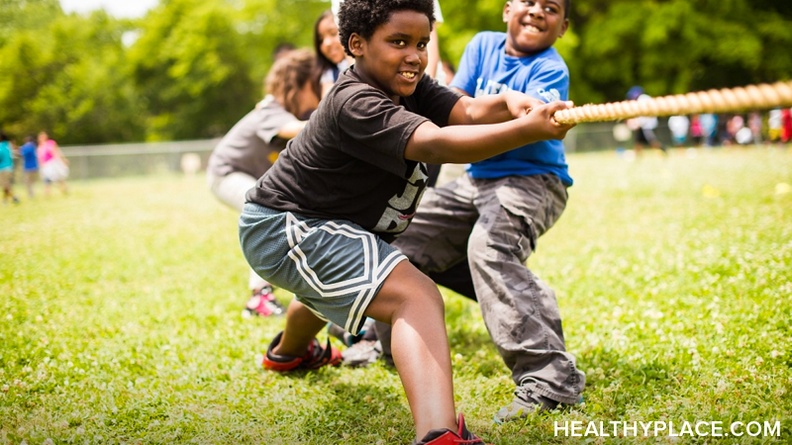Teaching Control to Your Overly Competitive Child

Learn how to help your overly competitive child without hurting his self-confidence and sense of competition.
A mother writes: My ten-year-old son reacts to competition as if it's life or death. His overreactions make people scared to play with him. What can we do to help him?
The Downside of Overly Competitive Children
Children playing sports or other games approach the experience with a mixture of feelings and attitudes. For some, competition fires an intense drive to win, sending strong currents of emotion and narrow expectations to the fore. If victory eludes them, the agony of defeat may range from somewhat unpleasant to downright nasty. Conversely, if they end up victorious, their display of pompous pride can turn a good thing into a social turn-off. Friendships suffer, reputations erode and other negative outcomes befall the overly competitive child. Incredulous onlookers, including parents, teachers, coaches and peers, may try to comfort with, "It's just a game," but the child in the throes of "competition fall-out" wants nothing of it.
How Sports Parents Can Help Their Overly Competitive Child
If your child suffers from frenzied feelings triggered by competition here are some coaching tips to cool down the fires:
Recognize that much of the problem is with perception and proportion. Some children view the need to win as the fuel that makes competition fun and gives them a reason to play. The notion that they could derive other satisfactions, such as socialization or incremental improvement, doesn't occur to them. This narrow perception sets the stage for disproportionate reactions to winning or losing. Use this awareness to expand their view of the "reasons to play" while showing them how the feelings we bring to competition should match up with all the other circumstances surrounding the game.
Draw a "competition barometer" that provides a visual reference to monitor their emotional investment in the game. One way to demonstrate different degrees of competitiveness is to display gradations on a vertical scale from 1-10. On one side of the scale, associate each number with situations, such as people present and game location. On the other side, describe feelings from casual to intense to denote how different circumstances link up with emotions surrounding competition. Emphasize that even if strong emotions are appropriate for a given situation everyone must bring self-control to play responsibly.
Offer self-talk tools and other exercises for them to utilize during game time. For the overly competitive child, the thrill of pursuing victory often entails an inner dialogue of extremes. Statements such as "I can't lose" or "I have to make my teammates want to win as much as me," fire up a boiling cauldron of emotion. Help your child lower the temperature by supplying statements they can silently repeat to themselves when needed, such as "I'll try my best but be prepared to control myself no matter what happens," or "I can't change what people think, say, or do." Also, emphasize the value of deep diaphragmatic breathing as another self-control exercise.
Help them practice winning and losing with grace. Inoculation involves a deliberate and gradual imposition of competitive triggers once the child has learned the skills for self-control. Invite them to play games that are based on their strengths and weaknesses, as well as luck, so that that they become familiar with using their new skills across the range of possible scenarios. Parents will discover that they need more practice with learning graceful defeat so make sure you play games that utilize your strengths.
APA Reference
Richfield, S.
(2019, August 6). Teaching Control to Your Overly Competitive Child, HealthyPlace. Retrieved
on 2026, March 5 from https://www.healthyplace.com/parenting/the-parent-coach/teaching-control-to-your-overly-competitive-child


